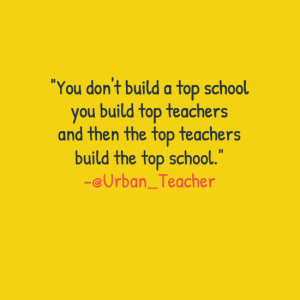
I recently visited an alternative education high school where I had taught for a year. The school uses PBL and students are genuinely loved and cared for. It was great seeing the staff and hearing success stories of former students. But unfortunately one horrible story sticks out in my mind.
Two of my former students are in prison to be tried for murder. One of them allegedly shot a kid in the face during a planned robbery of a drug deal. This student had some struggles at school, but I did not expect to hear about 2nd degree murder.
This caused me to reflect on some other former students who didn’t make it through high school. One made an online bomb threat to a former middle school that he previously attended, shutting down the school and terrifying that community. Another was arrested for armed robbery after breaking into a house with a gun. A third was shot in the lower body (but fully recovered), presumably in a drug transaction that went bad. All three of these boys never got in trouble at school.
You know what else all four of these boys had in common? They were strong academic students. They did their work and did not need much support to be successful in the classroom. Attendance was sometimes an issue for them, but when present they worked hard and did quality work.
These boys did not need better lesson plans, clearer learning targets written on the board, more engaging content, or any other “best practices” to be implemented in their classes. There are no magic teaching strategies that would have helped prevent their actions.
Instead they needed comprehensive counseling and mental health services, mentors, and effective community programs to help them and their families.
This is just a sampling of stories from my short stay at this school. There are rampant substance abuse problems and these students face pretty much every horrible challenge that you can imagine in their homes and communities.
You know what is not going to help these students “make it?” Better math and ELA instruction. This school uses PBL, focuses on SEL, and borrows practices from Restorative Justice and Mindfulness. All of these are wonderful education strategies, and help many students find success and graduate. But those who work in these settings know that none of it is ever enough to reach every student.
So I wake up early today, unable to sleep, in my comfortable, safe, middle class life. I wonder about the effects of second hand trauma on the staff who have dedicated YEARS to loving and serving a struggling community and its students. Little is done to support the adults in the building and look after their mental well-being.
Then I consider the politicians’ solutions to failing schools: start a charter, more accountability through standardization and mandatory testing, meanwhile cutting funds that schools are “wasting.” There is too much blaming of teachers who put their heart and soul on the line every day for kids.
The highest budget item for any district is paying the staff. Cutting school funding means cutting either staff pay and benefits or eliminating people. Often times the first people to go are the “support staff” including counselors and social workers. We can not solve complex problems by having less adults in schools for kids. Anyone who has worked in schools knows that smaller class sizes and more support is helpful for all schools, but is a necessity in low income, high trauma schools.
Schools can not fix all of society’s ills. The problems are systemic in society, not just in schools. Poverty in the form of unemployment and underemployment causes very real and traumatic issues for so many families. Schools can not be held responsible and culpable for every lack in children’s lives. Whole communities need to be restored.
We need comprehensive programs for these communities. These schools need more funding for mental health, counselors, and social workers. It would be impossible to have too many caring adults in our schools. We need mentorships for every child by community members. Teachers do not have the time or capacity to do this alone.
Will we ever get beyond the rhetoric of naming laws “No Child Left Behind” or “Every Student Succeeds Act” and actually fund adequate mental health and social care for students and work to end systemic poverty?

